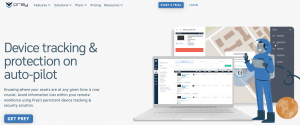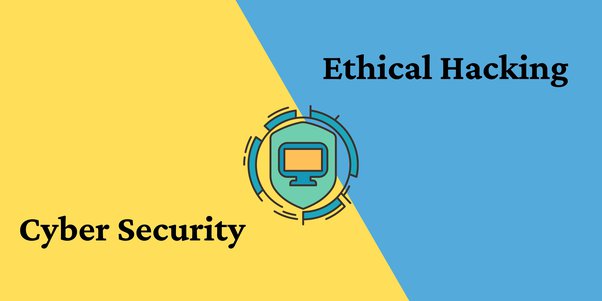Corporate espionage is a form of unethical or illegal activity where companies or individuals gather proprietary information from competitors to gain a market advantage. While the traditional methods of espionage involved covert operations like wiretapping or document theft, technological advancements have introduced new, more sophisticated tools. These tools range from hacking software to social engineering techniques, each presenting unique challenges to the target organizations. In this article, we will explore the technological tools used in corporate espionage, how they work, and their implications for business security.
1. Hacking Software and Malware
a. Spyware
Spyware is one of the most common tools used in corporate espionage. It is a type of malware designed to infiltrate a computer system, monitor activities, and collect sensitive information without the user’s consent. Spyware can be embedded in seemingly harmless files, emails, or applications. Once installed, it captures data like login credentials, financial information, and confidential documents. Keyloggers, a specific type of spyware, record every keystroke made on a device, providing the attacker with direct access to sensitive data.
How it’s used in corporate espionage:
- Collecting trade secrets, pricing strategies, and product designs.
- Monitoring communication between employees and external partners.
- Gaining unauthorized access to restricted files.
b. Trojan Horses
A Trojan horse is malicious software disguised as legitimate software. Once a Trojan is installed, it can create a backdoor into the system, allowing attackers to remotely access and control the compromised system. Trojans are often used in conjunction with other types of malwares, such as ransomware or spyware, to further infiltrate and damage corporate networks.
How it’s used in corporate espionage:
- Gaining access to sensitive business data without raising suspicion.
- Installing additional malware to further compromise the network.
- Collecting detailed information over a long period.
c. Rootkits
Rootkits are a type of malware that modifies operating systems to hide other malicious activities. They are especially dangerous because they can operate undetected for long periods, enabling continuous access to systems. Rootkits are typically used in advanced persistent threats (APTs), which are prolonged and targeted cyberattacks aimed at stealing data.
How it’s used in corporate espionage:
- Hiding the presence of other malware on the network.
- Modifying system logs to prevent detection.
- Providing long-term access to corporate systems.
d. Ransomware
Although ransomware is often used for financial gain, it can also be employed in corporate espionage to disrupt a competitor’s operations. By encrypting critical business files and demanding a ransom, attackers can destabilize a company, causing operational disruptions that could benefit a competitor.
How it’s used in corporate espionage:
- Disabling critical systems to gain a market advantage.
- Accessing sensitive information before locking it up.
- Coercing the target company into paying for their own data.
2. Network and Communication Interception
a. Packet Sniffers
Packet sniffers are tools that capture and analyse network traffic. By intercepting data packets as they travel through a network, attackers can extract sensitive information such as usernames, passwords, and confidential communications. Packet sniffers are particularly effective in unencrypted or poorly secured networks.
How it’s used in corporate espionage:
- Monitoring communications between employees to gather intelligence.
- Stealing credentials for accessing secure systems.
- Identifying vulnerabilities in network configurations.
b. Man-in-the-Middle Attacks
In a Man-in-the-Middle (MitM) attack, the attacker intercepts and alters communication between two parties without their knowledge. This technique is used to gain unauthorized access to information or inject malicious content into the conversation.
How it’s used in corporate espionage:
- Eavesdropping on confidential discussions between executives.
- Altering communications to create distrust or confusion within a company.
- Redirecting financial transactions for monetary gain.
3. Social Engineering
Social engineering is the art of manipulating people to disclose confidential information. It relies on psychological manipulation rather than technical expertise, making it a powerful tool in corporate espionage. Common social engineering techniques include phishing, pretexting, baiting, and tailgating.
a. Phishing
Phishing involves sending fraudulent emails or messages that appear legitimate to trick recipients into revealing sensitive information or installing malware. Spear-phishing, a targeted form of phishing, is particularly effective against high-level executives or employees with access to critical systems.
How it’s used in corporate espionage:
- Stealing login credentials for secure systems.
- Gaining access to confidential business plans or strategies.
- Introducing malware into the corporate network.
b. Pretexting
Pretexting involves creating a fabricated scenario to obtain sensitive information. For instance, an attacker might impersonate a technical support agent and ask an employee to share login details under the guise of solving an IT issue.
How it’s used in corporate espionage:
- Acquiring login information or bypassing security protocols.
- Manipulating employees into disclosing proprietary information.
- Creating false identities to gain insider access.
c. Baiting
Baiting involves luring victims with an attractive offer or physical item, like a free USB drive or download link, which contains malware. Once the bait is taken, the malware installs itself and provides the attacker with access to the system.
How it’s used in corporate espionage:
- Planting malware inside a company’s network.
- Encouraging employees to compromise security protocols.
- Gaining access to systems without direct hacking.
d. Tailgating
Tailgating, or piggybacking, involves an unauthorized person following an authorized person into a secure area. This technique requires physical presence but can lead to the exposure of sensitive information or access to restricted areas of a business.
How it’s used in corporate espionage:
- Accessing secure facilities to steal physical documents or devices.
- Gaining entry to systems or hardware without detection.
- Conducting surveillance on internal operations.
4. Exploitation of Hardware and Physical Devices
a. Hardware Keyloggers
Hardware keyloggers are physical devices that capture keystrokes when connected between a keyboard and computer. They are difficult to detect and provide attackers with a direct record of everything typed on a compromised device.
How it’s used in corporate espionage:
- Capturing login credentials and sensitive data.
- Bypassing software-based security measures.
- Recording passwords for secure areas or applications.
b. Rogue USB Devices
Rogue USB devices, like USB Rubber Duckies, are programmed to execute malicious scripts once plugged into a computer. They can install malware, create backdoors, or even destroy data on the host device.
How it’s used in corporate espionage:
- Gaining immediate access to a compromised system.
- Bypassing antivirus software and firewalls.
- Disrupting operations or installing surveillance tools.
To explore more about Technological Tools Used in Corporate Espionage, visit AI Tech Hacks, where we specialize in ethical hacking and customized security solutions to protect valuable assets and sensitive data.
5. Mitigating the Risk of Corporate Espionage
To combat the threat of corporate espionage, companies must adopt a multi-layered security approach:
- Implement robust cybersecurity measures: Use firewalls, encryption, and intrusion detection systems.
- Educate employees: Provide training on recognizing phishing attempts and social engineering tactics.
- Limit access: Implement role-based access controls and monitor user activities.
- Use physical security: Secure access to physical locations and sensitive areas within the company.
Understanding the tools and techniques used in corporate espionage is essential for developing effective countermeasures. By staying vigilant and employing both technological and human-focused defences, businesses can protect their valuable information and maintain their competitive edge.
Source:







